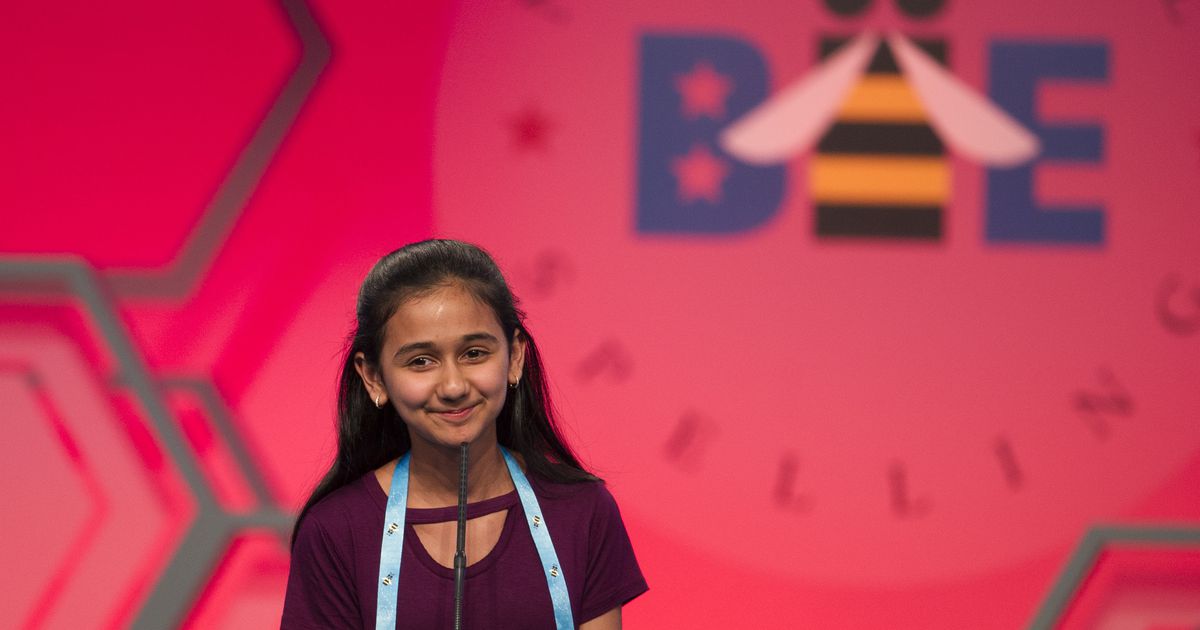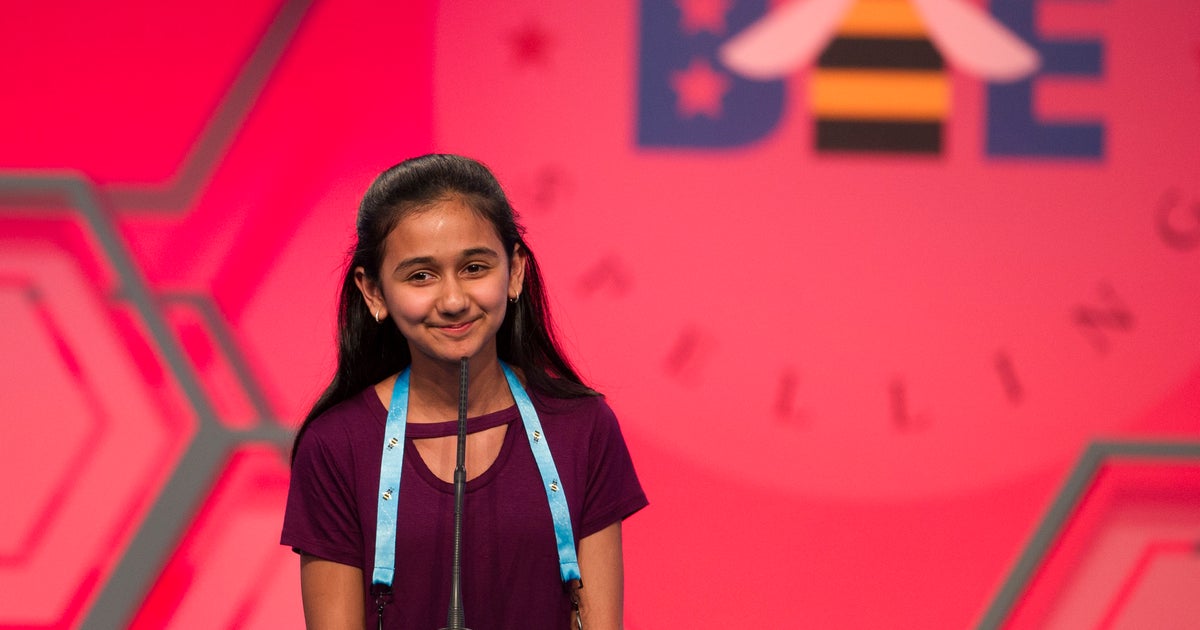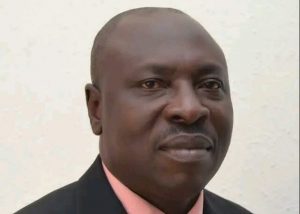National Spelling Bee ditches unpopular tiebreaker test


WASHINGTON (AP) — Ties are back at the Scripps National Spelling Bee.
To the relief of many participants, bee organizers have gotten rid of the written test spellers took just in case a single champion couldn’t be identified during the ESPN-televised finals.
The test began in 2017 after three consecutive bees ended with co-champions, but it didn’t turn out to be needed the past two years, and bee executive director Paige Kimble told The Associated Press it just wasn’t worth the trouble.
“We quickly learned it was hard on the spellers. It was hard on us. It made it difficult for all of the production pieces that needed to be done for the primetime broadcast to get done,” Kimble said. “It was just squeezing way too much in a short timespan when really what these kids needed more than anything else was to rest a little bit, put food in their stomachs and clear their heads for the evening.”
Only a dozen or so spellers make the primetime finals. To get there, they have to ace a written spelling and vocabulary test and spell several words correctly on stage over a span of three days. On the last day, the morning rounds can last several hours, until mid-afternoon. The remaining spellers then have to squeeze in time to eat, do interviews with ESPN camera crews and do other prep work for the broadcast.
In order for the bee to end in a tie, up to three spellers have to get through up to 25 “championship rounds” — one word per speller per round — without missing a word. The only exception comes if they misspell back-to-back, in which case the bee continues. There hadn’t been co-champions for 52 years before 2014, and that draw felt like a fluke.
The next one, between pre-bee favorites Gokul Venkatachalam and Vanya Shivashankar, felt inevitable. Only with the third straight draw did it start to feel like a problem. Kimble decided something had to be done.
But then, with the test as a fail-safe, the bee reverted to the norm. How those spellers fared on the test will never be known.
For many spellers, who are more concerned with fairness than whether the audience is satisfied with two winners, ties were never an issue.
“I really don’t see what’s so wrong with co-champions,” said 13-year-old Simone Kaplan of Davie, Florida, who finished tied for 10th last year and is back for another go at this year’s bee, which starts May 27 at a convention center outside Washington.
“If people are at that level, they really deserve to be co-champs,” said 13-year-old returning speller Aisha Randhawa of Corona, California, who tied for seventh last year. “Honestly, I do feel that anyone in the top 10 of the spelling bee really are champions. It really boils down to a bit of luck at the end.”
The previous ties were so unexpected that Scripps ended up giving the full first-place cash prize — around $40,000 — to both spellers. This year, though, the first-place check has increased to $50,000, and in the event of a tie, the co-champions would split the first- and second-place money, taking home $37,500 apiece.
While the test was in use, Kimble insisted that if it was needed to break a tie, the moment would be suitably dramatic and satisfying. Others weren’t so sure. One complaint among spellers is that the test included not just spelling but vocabulary questions.
“It would be absolutely devastating,” Naysa Modi, last year’s runner-up, said about the prospect of using the test. “It’s called the spelling bee. … When it comes to deciding who the champion is going to be, I think it should be all down to spelling and not having to factor in vocab.”
Naysa, who’s 13 and from Frisco, Texas, will be back for this year’s bee — the rare runner-up who had a year of eligibility remaining.
“It’s obviously really hectic if you make it to night finals, because after semis they hit you with interview after interview. They barely give you any time to eat, any time to think. You’re running from one ballroom to another ballroom. It’s stressful and hectic for a speller who’s already under a lot of stress,” Naysa said. “I’ll be more relaxed this year and less stressed out, if I make it to night finals.”







